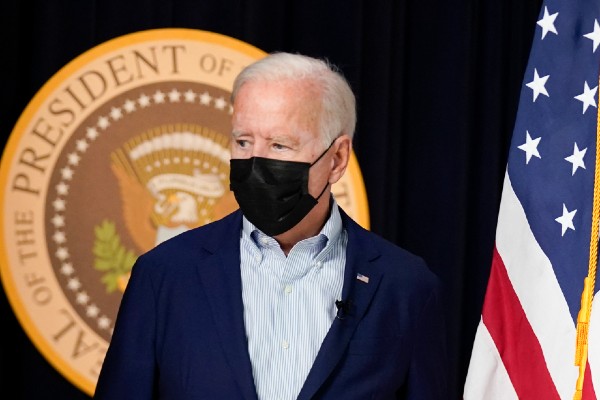Bennett reportedly proposed ‘two-pronged’ approach to deal with Iran’s proxies and nuclear program.
By Pesach Benson, United With Israel
President Joe Biden’s mood on a U.S. return to the Iranian nuclear deal is “not optimistic,” according to an Israeli source quoted by Times of Israel. The report followed up on the president’s Friday meeting with Israeli Prime Minister Naftali Bennett in the Oval Office.
The controversial Joint Comprehensive Plan of Action (JCPOA) promised Iran economic incentives in exchange for limits on its nuclear program. It was agreed upon between Iran and the world powers in 2015. Former president Donald Trump withdrew the U.S. from the agreement in 2018. Negotiating a return to the nuclear agreement is a key foreign policy goal of the Biden administration.
“We’re putting diplomacy first and seeing where that takes us,” Biden said in the Oval Office, as Bennett sat by his side. “But if diplomacy fails, we’re ready ,to turn to other options.”
Later on, when asked what options Biden might be considering, White House press secretary Jen Psaki declined to comment.
During his 50-minute private meeting with the President, Bennett proposed a two-pronged approach to dealing with Iran, according to Times of Israel by “confronting its regional activities in a quiet, multi-faceted ‘gray zone’ campaign, and keeping Tehran permanently a year away from nuclear breakout capability.”
The Biden administration’s optimism has been further soured by the election of the hard-line Iranian President Ebrahim Raisi. Raisi is known as the “Butcher of Tehran” for his role in executing thousands of political prisoners in the 1980s. His new Interior Minister, Ahmad Vahidi, is wanted by Interpol over his alleged role in the 1994 bombing of the Buenos Aires Jewish community headquarters while his new Foreign Minister, Hossein Amirabdollahian is said to have close relations with Hezbollah.
Israel opposes an American return to the JCPOA agreement.
Israel’s Walla News reported that Bennett promised not to publicly campaign against a U.S. return to the Iranian nuclear deal. According to Walla, Bennett made similar pledges to US Secretary of State Antony Blinken and U.S. National Security Adviser Jake Sullivan to not to publicly air his criticisms.
That’s in contrast with former prime minister Benjamin Netanyahu’s vocal opposition to the nuclear deal.
Associated Press contributed to this report.
